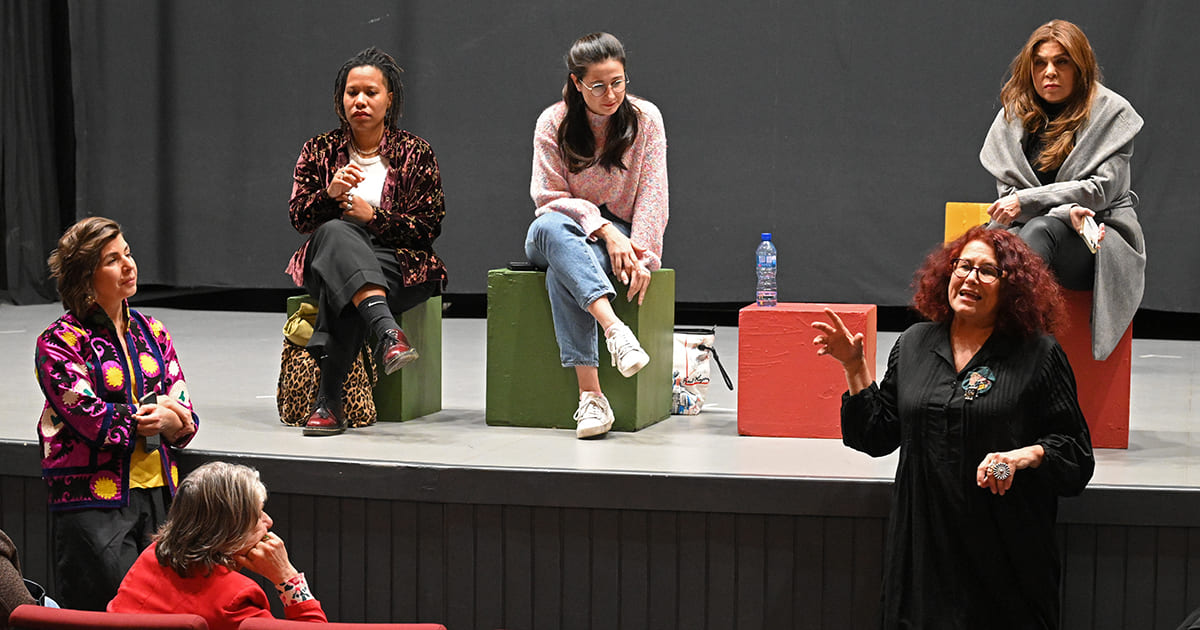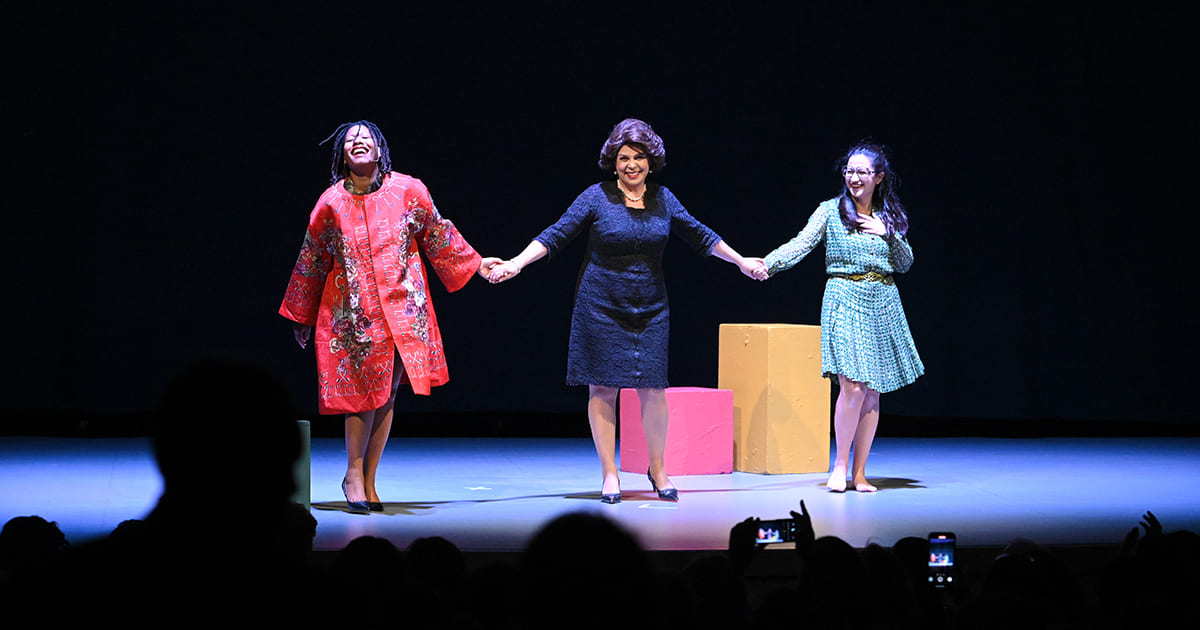Leila, Latifa, Chimamanda: A Timeless, Universal Tale of Feminist Thought
Dr. Lina Abyad’s latest collaboration with the Arab Institute for Women masterfully unites three feminists from different cultures, decades and geographies.
From a candid, one-sided phone conversation of a teenage girl in 1960s Beirut to the shocking, introspective revelations of an activist in 1970s Cairo, Leila, Latifa, Chimamanda sparked conversations, stirred emotions and left audiences reflecting on a rare artistic blend of feminist thought across cultures and generations.
Over three performances on January 29, 30 and 31, 2025, in Irwin Hall, Beirut campus, the theatrical production hosted by the Arab Institute for Women (AiW) and directed by former Associate Professor Lina Abyad highlighted the works of Leila Baalbaki’s Ana Ahya (I live), Latifa Al-Zayyat’s Awraq Shakhsiyya (Personal Papers), and Chimamanda Ngozi Adichie’s Dear Ijeawele, or A Feminist Manifesto in Fifteen Suggestions.
During a Q&A session that followed the opening-night performance, Dr. Abyad offered the rationale for selecting these three feminists. “I wanted to highlight lesser-known feminists who truly pushed the envelope,” she said.
Dr. Abyad illustrated with the example of how Baalbaki had written about sensitive topics such as marital rape, her complicated relationship with her father and breaking free from the patriarchy at a time when this was not yet part of public discourse. In fact, Baalbaki’s book was banned in Lebanon because of its daring take on the subject.
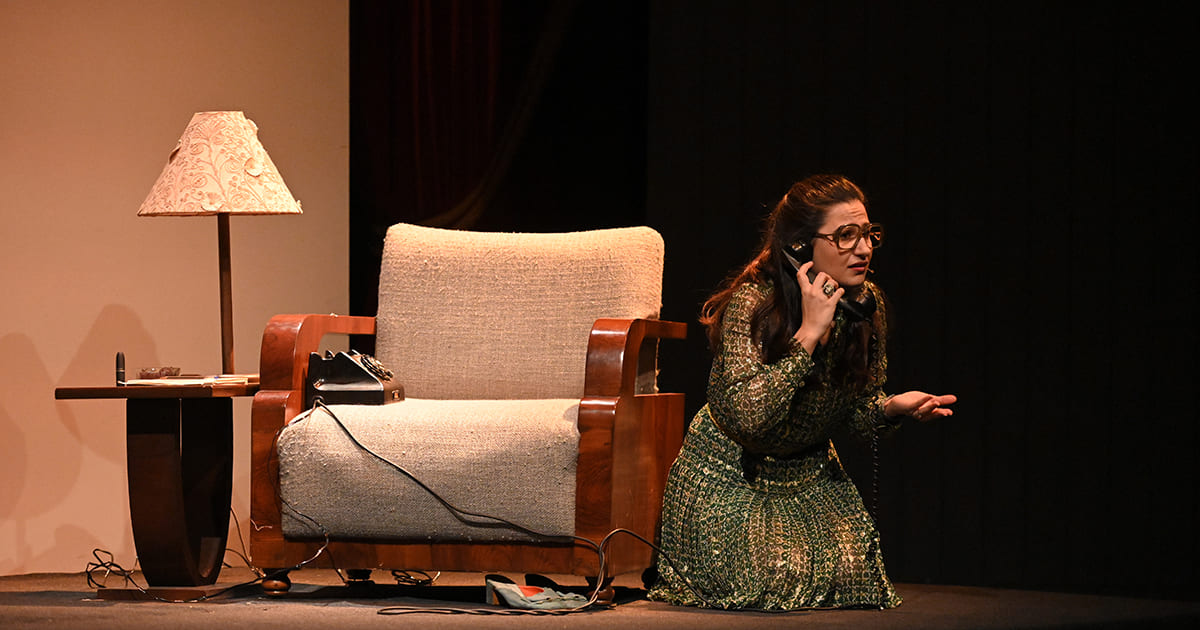
Jana Abi Ghosn as one of the characters from Leila Baalbaki’s book, Ana Ahya.
Latifa Al-Zayyat, said Dr. Abyad, “is a rare example of a woman who was brave enough to own up to her own mistakes, without blaming society, her former husbands or her family—and I found this very powerful.” The Egyptian activist sums up her story in one of the most captivating lines in the play, saying: “I have been married twice, divorced twice and incarcerated twice,” a clear affirmation of how she had made peace with her past.
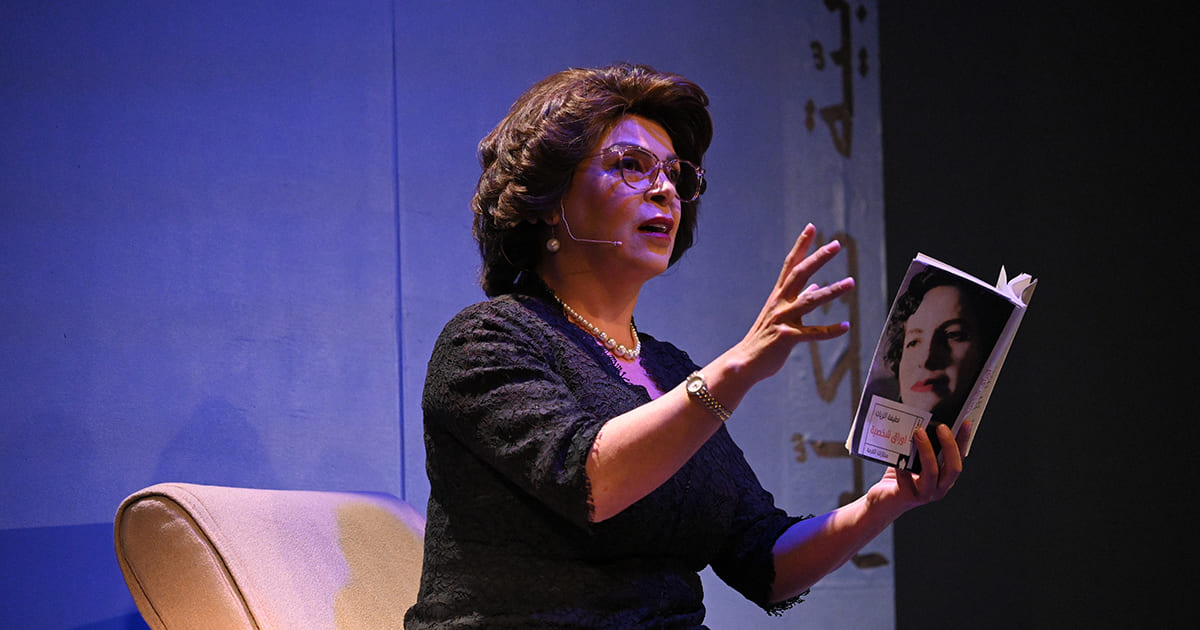
Gretta Aoun as Latifa Al-Zayyat.
Reading Adichie’s feminist manifesto for Dr. Abyad was such an overwhelming experience that she remembered doing it in one sitting. “I believe it should be mandatory reading for any parent about how they should raise their child, whether a boy or a girl,” she added.
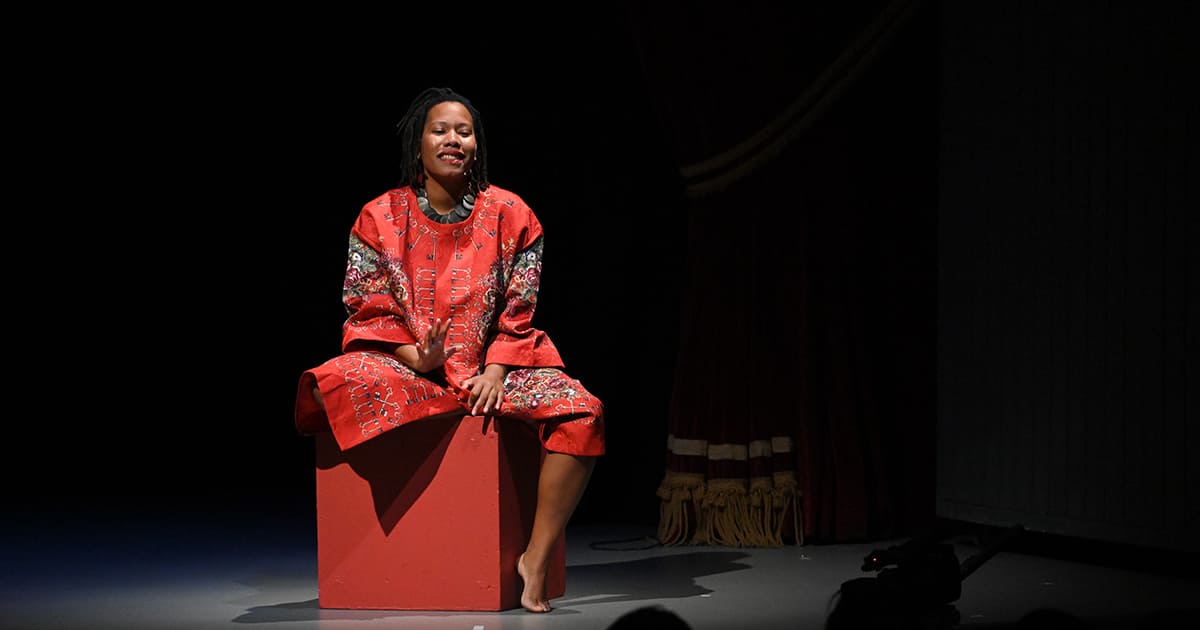
Lama El Amine as Chimamanda Ngozi Adichie.
The play was produced as part of a grant from the United Nations Development Programme (UNDP) and UN Women, with seed funding from the Government of Canada for the Women in Leadership Program. It is the first of a series of events planned under this program, and in celebration of AiW’s 50th anniversary, that is intended to amplify the voices of influential women leaders and pioneer feminists from the region and beyond.
AiW Executive Director Myriam Sfeir offered some context about the program. “Patriarchal norms and a rigid socio-political culture that prioritizes male elite and male-dominated kinship structures have long prevented women in Lebanon from attaining leadership positions,” she explained.
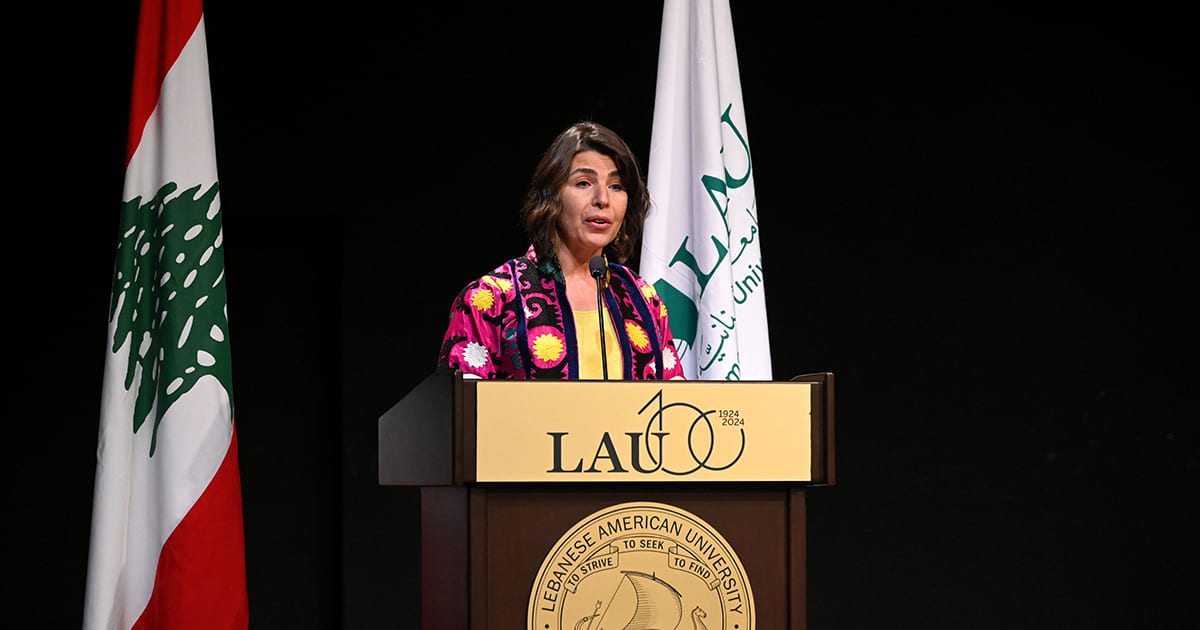
While some women have managed to break through these barriers and secure decision-making roles, added Sfeir, patriarchy continues to impede their success especially when they advocate for feminist principles or gender-equitable policies.
“Despite these challenges,” she affirmed, “women leaders do exist, and they have left a profound legacy that the institute aims to amplify through this project.”
Following the performances at LAU, the play is planned to tour other educational institutions, including schools, across Lebanon.
